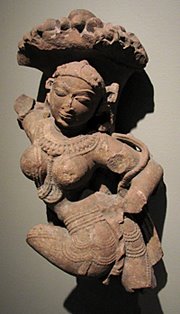I keep a personal journal, a habit I picked up when I started in seriously with astronomy. This at first was simply a means to record the objects I found and observed with my telescope, but from the beginning also included bits of this and that, like who my observing companions were and what antics they displayed. From there it was a natural step to record observations about birds, trips to state parks, our Grand Canyon vacation, and the like. I have occasionally included illustrations, at first astronomical sketches, which seems an unlikely thing to do at the telescope, in the dark, but is surprisingly rewarding and encourages one to look more carefully and enables one to recall specific detail even years afterward. But these journals are for myself. “I to Myself” as Thoreau said it, and while a few others have glanced at them, I never felt self-conscious about the contents, or felt inhibited about my expressions. And, to be honest, as time has passed, I have become reserved about permitting anyone, other than Elly, to look through them. Not that they contain anything to hide, but simply because they have become a private preserve to pursue my own thoughts, feelings, and ideas.
Blogs, on the other hand, are anything but private. Their intent is to immediately share the content with anyone on the planet who cares to take a peek. One puts oneself on display, which also puts one on guard, sacrificing a certain amount of spontenaity and freedom easily exercised in solitude.
Posts about books often read like reviews, rather than journal entries. It’s easy to adopt this style of writing, considering that your audience is likely to include your circle of friends and anyone else with similar interests and a slight knowledge of search engines. It seems necessary to include an overview of the book’s contents, an assessment of its strengths and weaknesses, and finally a recommendation whether to pick it up or pass it by.
After considering the matter for some days, it has occurred to me that I don’t want to review André Comte-Sponville’s book, but rather explore some of the ideas he presents and my own response to them, to delve into particular points that resonate with me.
Before continuing, I'll add that this is not the sort of book I read once and set aside. Instead, I find myself rereading passages and pondering them, dipping into a page or two here and there, being reminded of something in another book and digging that up, having some experience or fleeting thought or idea that brings me back to the book later for more reflection. In short, Comte-Sponville has joined a small group of writers whose ideas I value and respect and find inspiring. Having said that, I might as well refer to the author as André.
André discusses what he calls “oceanic feeling” in a topic of that name which is included in the book’s third section, “Can There Be an Atheist Spirituality?”. It follows a closely related topic, “Immanensity.” Throughout his book, André engages in word play, intended one supposes to be amusing and thought-provoking, which often takes the form of combining several words, as, in this case, "immensity" and "immanence." (I do find it amusing and thought-provoking.)
Spirituality has more to do with experience than thought; this is what distinguishes it from metaphysics. And whereas we have a conception of the infinite, we have no experience of it. We have an experience of the unknown (knowing we do not know), which itself is part of spirituality (the part I have chosen to call mystery). However, we also — and first, and especially — have an experience of immanence and immensity, which, following the poet Jules Laforgue, we can call immanensity. We are in the All, and whether it is finite or not, it surpasses us (goes beyond us) in every direction; its limits, if it has any, are permanently beyond our reach. It envelops, contains and exceeds us. Is it a transcendence? Not at all, since we are inside of it. It is an inexhaustible, indefinite immanence, whose limits are both undefined and inaccessible. We are inside it — we live within the unfathomable.
“We live within the unfathomable.” What an evocative and brilliant statement, acknowledging at once that the limits of the universe, which may or may not be infinite, nevertheless lie forever beyond our reach, and that experiencing the All and accepting its essential mystery without attempting to explain it, without, that is, God and religion, is a profound basis for spirituality.
I started this post intending to discuss André’s notion of “oceanic feeling,” but find now that I have said all I care to at present, so I’ll have to pick the subject up in a later post, which is something I never hesitate to do in my personal journal.





1 comment:
Glad I found you Fiske. I am pursuing spirituality in the same general direction you are going.
Regards,
ole meph
Post a Comment